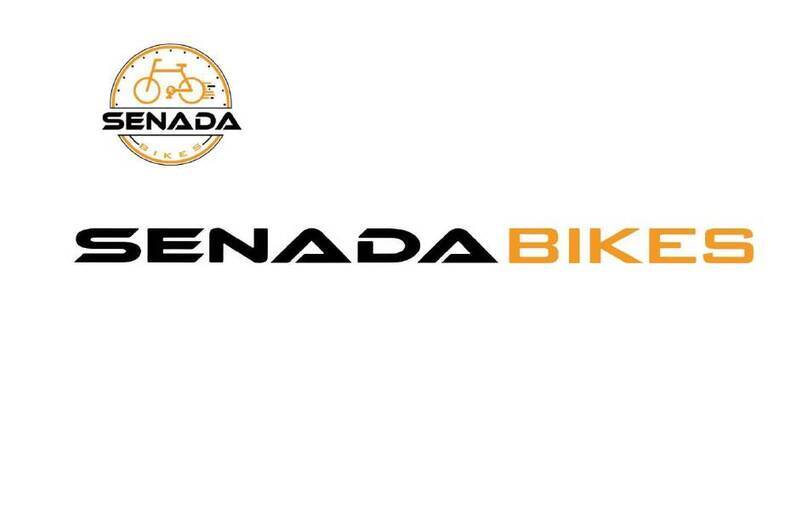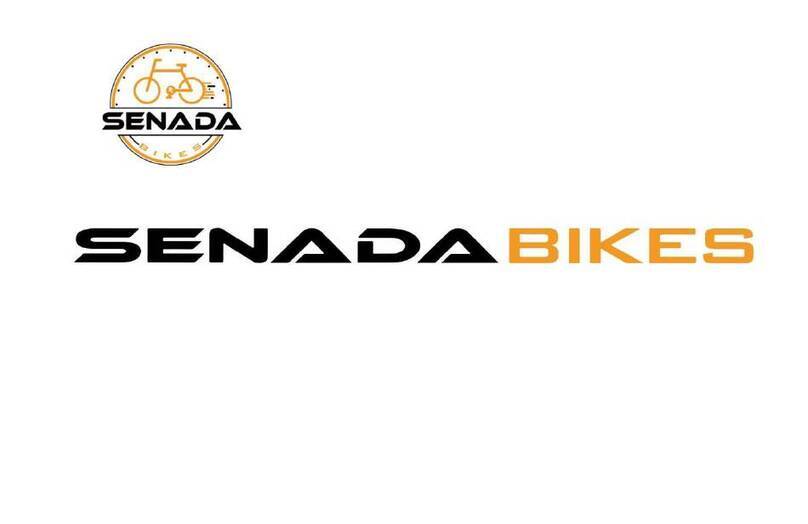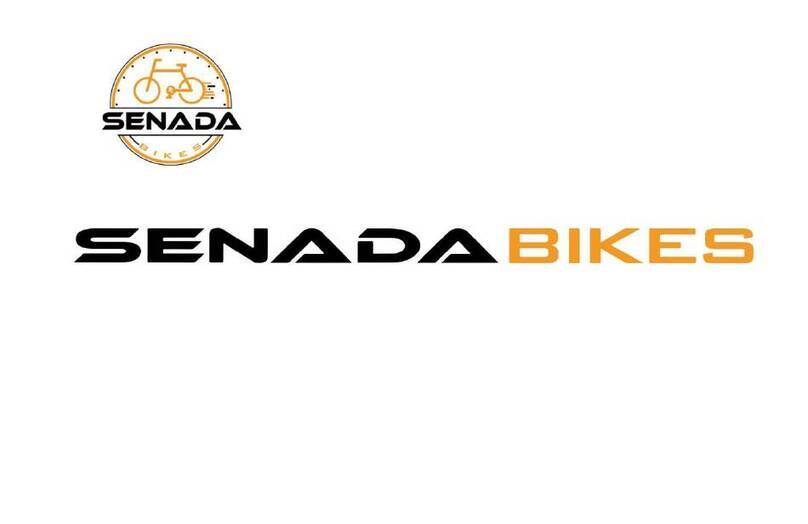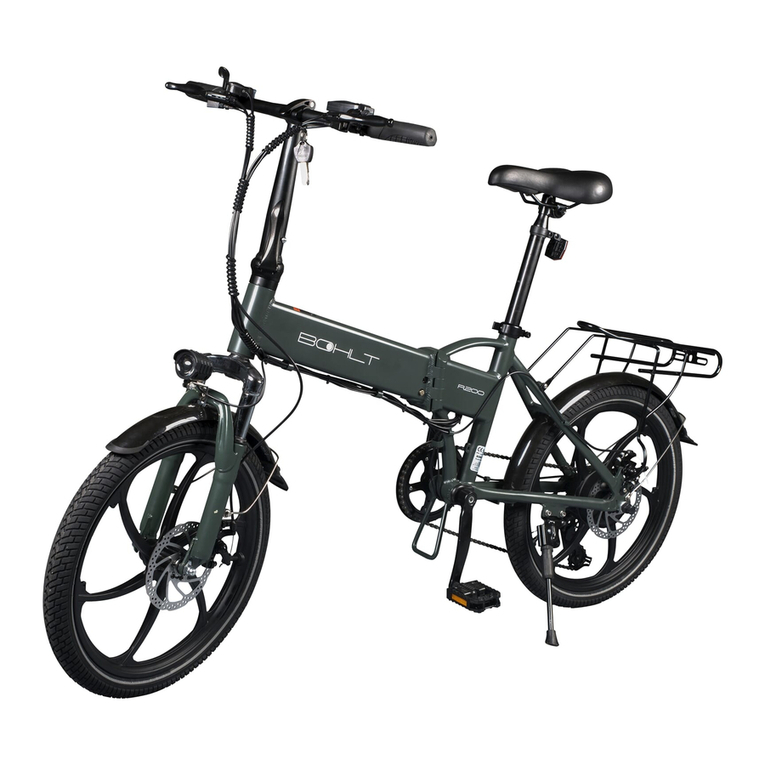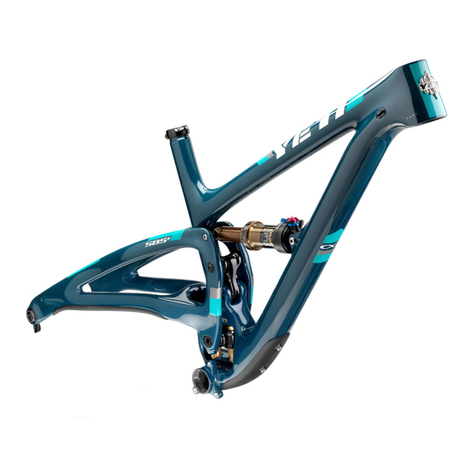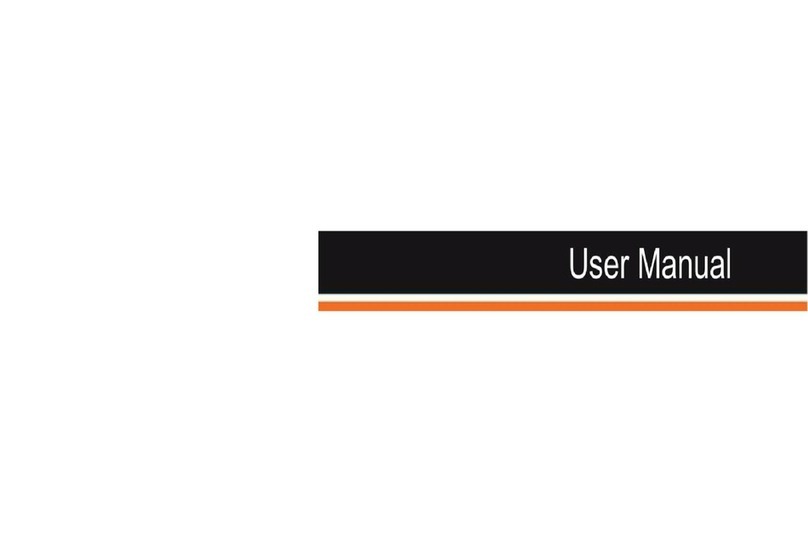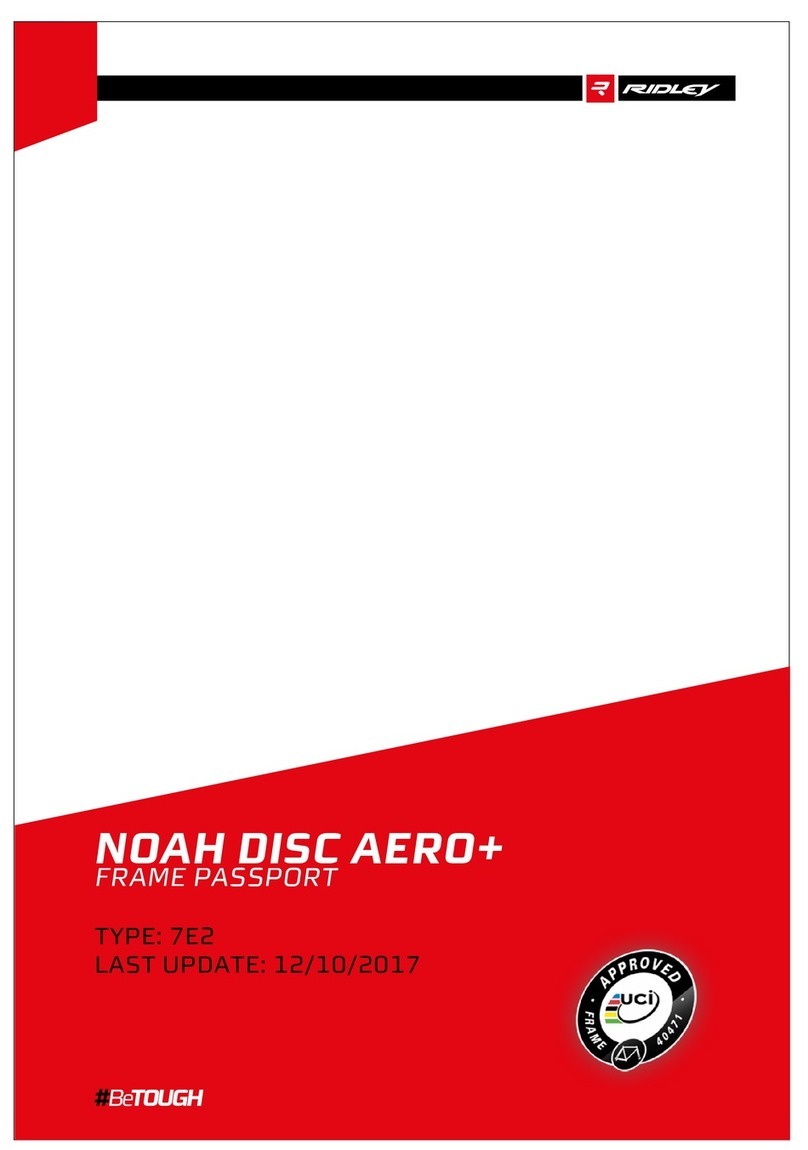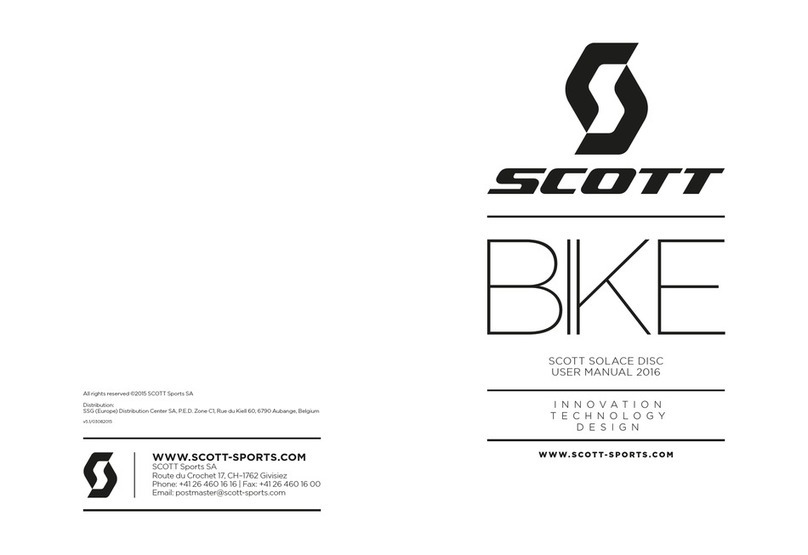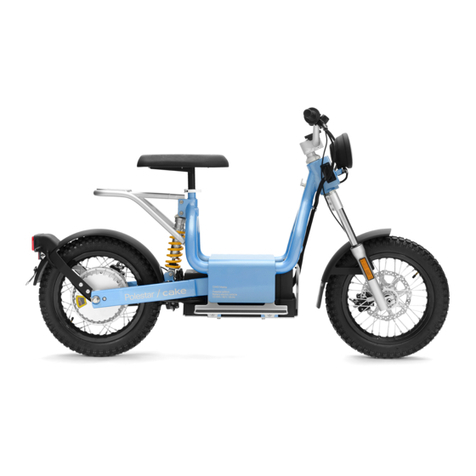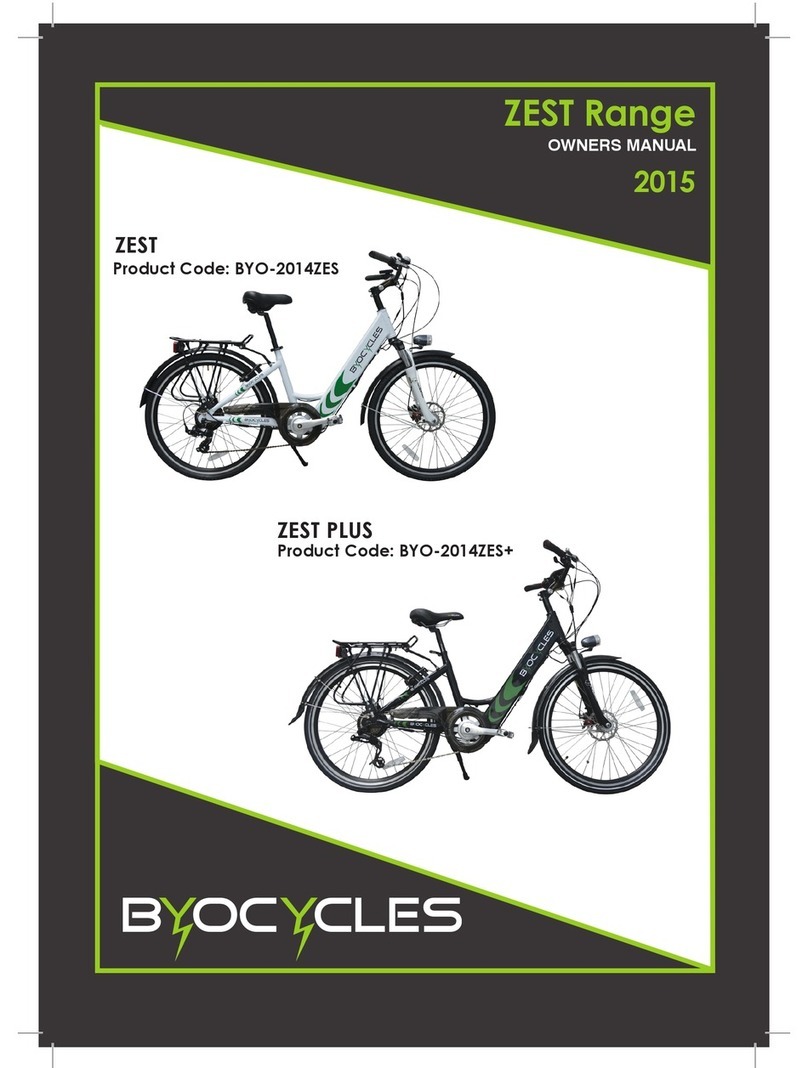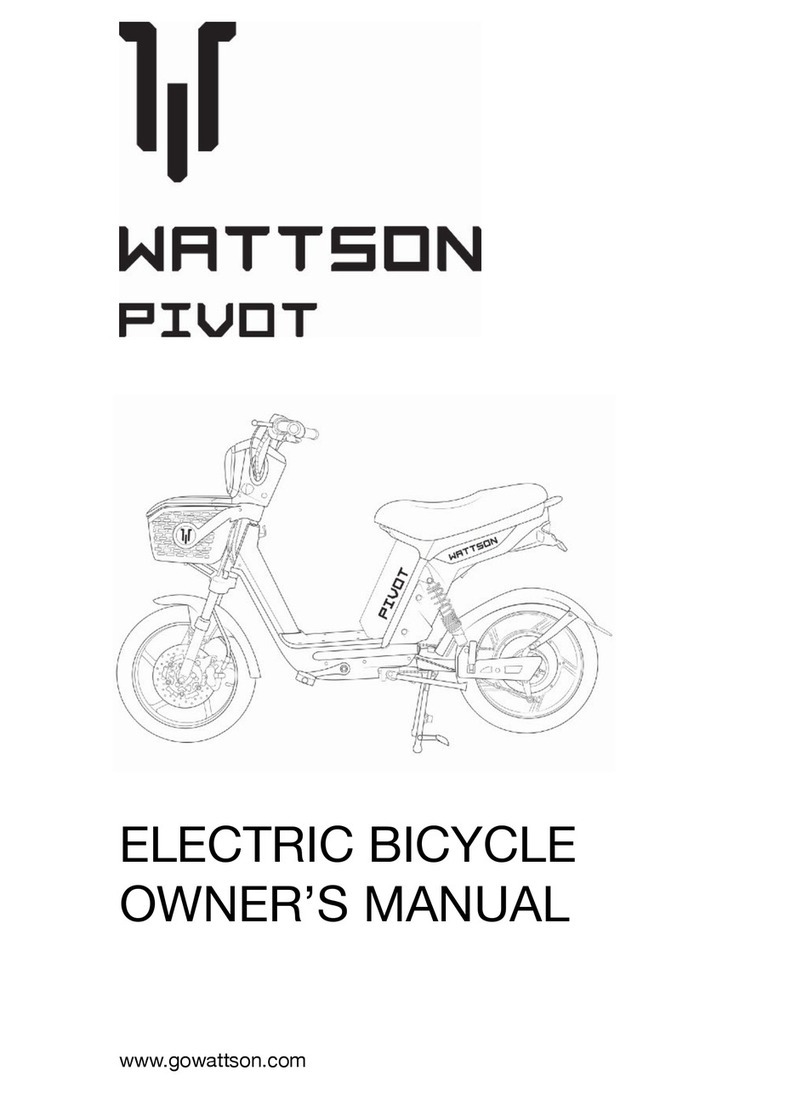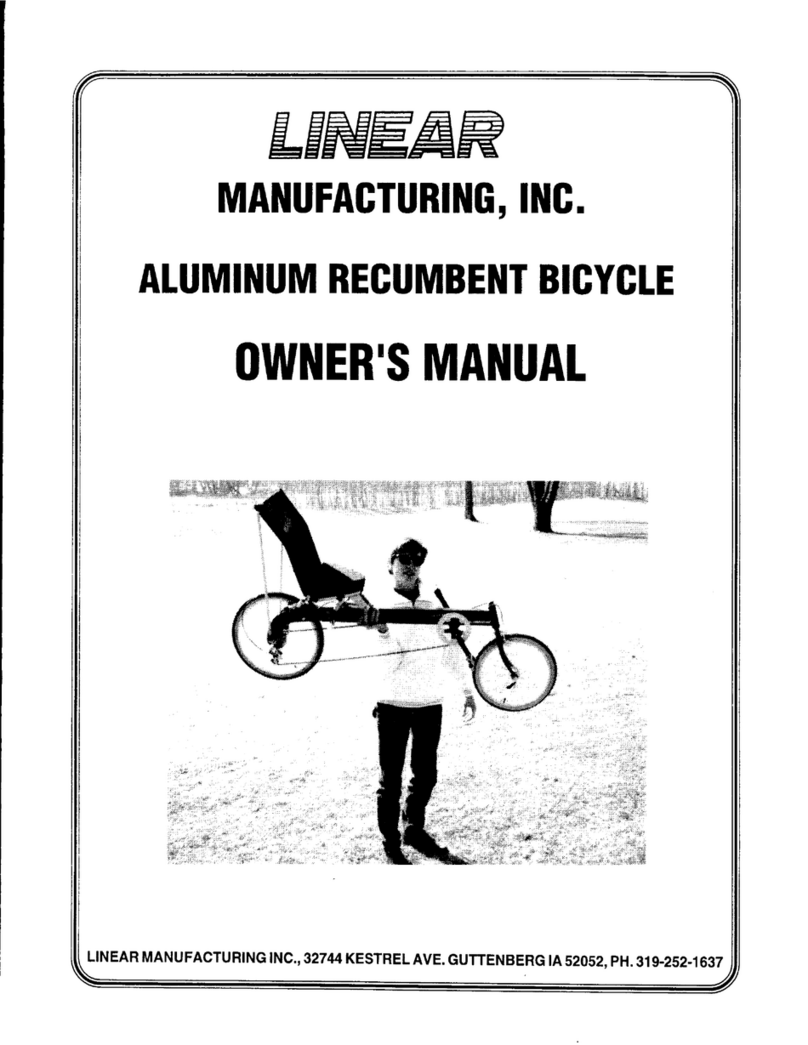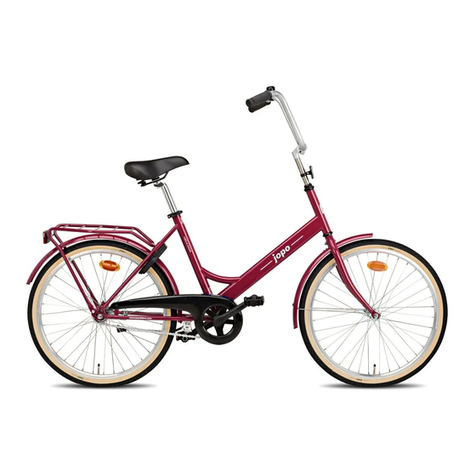SENADA SABER User manual

SABER
&
HERALD
OWNER’
SMANUAL

1
Welcome
Thank you for purchasing SABER/HERALD from Senada Bikes.
Please read carefully and understand this manual fully before assembling and riding your bike.
If you have questions after reading this manual, please contact us by email.
We are here to help!
Email:[email protected]

2
Using This Manual
This manual contains details of the product, its equipment, and information on operation, maintenance, and other helpful tips for
owners. Read it carefully and familiarize yourself with the ebike before using it to ensure safe use and prevent accidents. This
manual contains many warnings and cautions concerning the safe operation and consequences if proper setup, operation, and
maintenance are not performed. All information in this manual should be carefully reviewed and if you have any questions you
should contact Senada Bikes immediately.
The notes, warnings, and cautions contained within the manual and marked by the triangular Caution
Symbol at the right of this page should be given special care. Users should also pay special attention to
information marked in this manual beginning with NOTICE.
Keep this manual, along with any other documents that were included with your bike, for future reference, however all content in
this manual is subject to change or withdrawal without notice. Senada Bikes makes every effort to ensure the accuracy of its
documentation and assumes no responsibility or liability if any errors or inaccuracies appear within.
Assembly and first adjustment of your bike from Sanada Bikes requires special tools and skills and it is recommended that
this should be done by a certified, reputable bike mechanic if possible.
Because it is impossible to anticipate every situation or condition that can occur while riding, this manual makes no
representations about the safe use of bikes under all conditions. There are risks associated with the use of any bike that cannot
be predicted or avoided and are the sole responsibility of the rider.

4
General Info
Assembly and Fit
Correct assembly and fit are essential elements of ensuring your bicycling safety, performance, and comfort. Even if you have the
experience, skill, and tools to complete these essential steps before your first ride, Senada Bikes recommends having a certified,
reputable bike mechanic to check your work.
NOTICE: If you do not have the experience, skills, or tools to complete assembly and fit, Senada Bikes highly recommends
having a certified, reputable bike mechanic complete these procedures as well as any future adjustments or tuning.
NOTICE: A critical aspect of assembling your bike by Senada Bikes is securing the front wheel and checking the tightness of the
rear wheel axle nuts. These mechanisms may become loose or unsecured during shipment or over time. The torque and security
of all wheel mounting hardware should be inspected upon arrival and on a regular basis. Both wheels need to be properly
secured before operating your bike.
Mandatory Equipment and Use Locations
Before all rides, ensure you have all required and recommended safety equipment and are following all laws pertaining to using
an electric bike in your region.
Changing Components or Attaching Accessories
The use of non-original components or spare parts can jeopardize the safety of your ebike, void your warranty and, in some cases,
cause your ebike to not conform with laws pertaining to your bike.

5
Safety Check Before Each Ride
Always check the condition of your bike before you ride in addition to having regular maintenance performed. If you are unsure
of how to conduct a complete check of the condition of your bike before every ride, you should consult a certified, reputable bike
mechanic for assistance. See the Pre-Ride Safety Checklist for more information.
Electrical System
The electrical system on your ebike offers various levels of power assistance and lighting for different operating conditions and
user preferences. It is critical that you familiarize yourself with all aspects of your ebike’s electrical system and check to see that it
is working correctly before every ride. The front and rear brake levers contain safety power cutoff switches, which disable the hub
motor’s assistance when applied, and both levers should be checked for correct operation. The throttle should provide smooth
acceleration when gradually applied. If the throttle, brake lever cutoff switches, pedal assistance, or lighting are functioning
abnormally, intermittently, or not working, please discontinue using your ebike immediately and contact the Senada Bikes
Product Support team for assistance.

6
Quick Release Levers
Quick release levers are located on your ebike for securing the seatpost .This provide convenience to the user since they allow
the seatpost to be adjusted without tools. Since quick release levers can be loosened during transportation, or accidentally
between or during rides, it is important that you regularly check to ensure these components are properly secured.
Accessories, Straps, and Hardware
Ensure all hardware is secured and all approved accessories are properly attached per the specific component manufacturer’s
instructions. It is good practice to look over all hardware, straps, and accessories before each ride and if you do discover
something is wrong or find something you are not sure about, have it checked by a certified, reputable bike mechanic.
Suspension, Handlebar, Grips, and Seat Adjustments
The suspension fork on your ebike will affect the handling of the bike ,you need to understand how it works before use. The
suspension fork should be properly adjusted for your weight and terrain. Ensure the handlebar and handlebar stem are properly
aligned, fitted to the user, and secured to their recommended torque values. Handlebar grips should not move easily on the
handlebar end. Loose, worn, or damaged handlebar grips should be replaced before you ride and can be purchased from
Senada Bikes. The seat and seatpost should be properly aligned, fitted to the user, and the seatpost quick release should be
properly tightened, fully closed, and secured before riding.
Battery Charged, Secured, and Unplugged
Ensure the battery is adequately charged and operating properly. The battery gauge on the LCD display and charge status
indicator on the battery should read similarly. Ensure the battery charger is unplugged from the outlet, battery, then stored in a
safe location before you ride.

7
Fully Assembled
We have many other colors in these two series, the following pictures are for reference only.

8
s)
Assembly Instructions
NOTICE: The following steps are only general guidesto assist in the assembly of your ebike and are not a complete or
comprehensive manual of all aspects of assembly, maintenance, and repair. Consult a certified, reputable bike
mechanic to assist with assembly, repair, and maintenance of your ebike.
Step 1: Unpack the bike. Open the bike box and remove the small box inside. With the help of another person capable
of safely lifting a heavy object, remove SABER/HERALD from the bike box. Carefully remove the packaging material
protecting the bike frame and components. Open the small box and carefully set out all contents.
Ensure all the following pieces are included with SABER/HERALD:
●Front Wheel ●Manual
●Assembly Toolkit
●Keys (2x, identical)
●Front/rear fenders
●Charger
●Pedal Grease
●Pedals (marked left and
right)
●Handlebar Stem
faceplate bolts (4x)

9
Step 2: Install handlebar on the stem
A. Place the handlebar on the stem correctly. Trace the front brake cable directly
up from the front brake caliper to the left handlebar and ensure the cables and
wires are not twisted.
B. Locate the four handlebar faceplate bolts in the accessory box.
C. Center the handlebar and tighten the four stem faceplate bolts evenly and
part way.
D. Secure to the recommended torque value. Once adjusted properly, use a
torque wrench with a 5 mm Allen bit to evenly tighten the four stem
faceplate bolts (shown at right) to the recommended torque value, 10
Nm.
Get help from a bike fitting professional for safety and optimal fit and bike ergonomics.
Consult a certified, reputable, and local bike fitting specialist for assistance properly fitting
the bike to a rider.

10
Step 3: Install the front wheel.

11
Remove the screw from front wheel Put front wheel in right position

12
Install the skewer into the front wheel axle
thread the thumb nut onto the
skewer a couple turns.
Fully seat the skewer in the fork dropouts
(and the brake rotor in the caliper)
and turn the thumbnut, as shown
Using the Wrench(15mm) to tight the thumb nut.As below picture.

13
When properly installed, the front wheel should be fully seated and centered in the dropouts of the front fork, the
brake rotor should be in between the brake pads in the brake caliper Ensure the front wheel is properly secured
before moving on to the next step.
Never touch the brake rotor, especially when the wheel and/or bike is in motion, or serious injury could occur. Hand oils
can cause squeaking and decrease brake performance;

14
Step 4: Lock the handlebar stem by tightening the screws as shown below Please make sure that the front wheel is
aligned to the handlebar before tightening)

Step 5: Install Front Fender and Headlight. Remove headlight screw
and slide the fender under the fork, above the tire.
Position the mounting point to be in the back of the fork by the
screw hole, layering the headlight first, then the fender mounting
point (as shown below). Screw the headlight back in. The screw will
go through the mounting point of the fender and through the
headlight (see image below).
15

16
Then unscrew the 2 screws and bolts on both sides right below the fork (see image below), and screw the fender
mounting arms in.

17
Step 6: Install the pedals. Locate the pedal with a smooth pedal
axle exterior and an engraved “R”, which indicates it is the
right pedal (as shown below). The right pedal goes on the crank on
the right side of the bike (which has the drive train gears and is the
same as a rider’s right side when riding). Applya small amount of
grease to the thread of the pedal of each axle as shown below
The right pedal (1) is threaded so that it is tightened by turning clockwise. Carefully thread the right pedal onto the
crank on the right side of the bike slowly and by hand by rotating clockwise. Do not cross thread or damage the
threads and make sure to tighten the pedal with wrench provided

18
The left pedal (2) is reverse-threaded and tightens counterclockwise.The pedal has an engraved “L” into the end of
the axle (pictured below), indicating it is the left pedal. Carefully thread the pedal onto the left crank by hand slowly
by tightening counterclockwise.Do not cross thread or damage the threads and make sure to tighten the pedal with
the wrench provided

19
Torque each pedal to 35 Nm. Use the pedal wrench provided to avoid damage caused by wider wrenches.
Right pedal tightens clockwise. Left pedal tightens counterclockwise.
This manual suits for next models
1
Table of contents
Other SENADA Bicycle manuals

